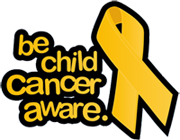The text of our petition followed by the Governments response.
Petition
The incidence of Child & Teenage Cancer is increasing. 1 in 330 children will develop Cancer before they are 15; 2, sick 400 Teenagers are diagnosed with Cancer in the UK each year. A group of parents whose children have Cancer or whose children have lost their fight are trying to raise awareness of the signs & symptoms of Cancers that affect children.
We have set up a Child Cancer Awareness Campaign for 2010. We need the Govt to get behind this campaign to ensure that every parent is made aware of the Cancers that affect Children and Teenagers. We are also asking Government to contact all GP’s in the UK to re-emphasise the details for Child Cancer referrals contained in the NICE guidelines (reference Page 42 onwards). These guidelines are invaluable towards getting an Earlier Diagnosis + Earlier Treatment which will save more lives.
The Awareness Campaign will also raise funds to help to pay for treatment for UK children with cancer abroad as not all treatment for Child Cancer is available in the UK. We ask the Govt to bring these treatments to the UK by providing access to the 3f8 antibody along with installation of proton machines in some of our hospitals.
Government Response
The Government is seeking to improve the survival rates for all cancer patients, sickness including children. The document The Coalition: our programme for government commits this Government to measuring success on the health results that really matter, such as improving cancer survival rates.
Cancer survival rates in England have been steadily improving, but further improvements need to be made. It is now generally agreed that the most prevalent reasons for lower survival rates in England compared with other European countries are low public awareness of the signs and symptoms of cancer, delays in people going to see their doctors, and the disease being more advanced at diagnosis.
Ministers will be looking carefully at how best to improve public awareness of cancer symptoms. The Department appreciates all the work that is being undertaken by voluntary organisations like Be Child Cancer Aware to raise the profile of cancer amongst children and young people, and the help and support they offer to young people with cancer and their families and carers.
The guidance Improving outcomes for children and young people with cancer, which was published by the National Institute for Health and Clinical Excellence (NICE) in 2005, serves to assist NHS Trusts with planning, commissioning and organising services for children and young people with cancer. It recommends the establishment of specific education for professionals in primary and secondary care in the recognition and referral of suspected cancer in children and young people.
To support the implementation of the NICE guidance, the Children and Young People’s cancer advisory group was formed, co-chaired by Professor Mike Richards (National Cancer Director) and Dr Sheila Shribman (National Clinical Director for Children, Young People and Maternity Services).
Action is being taken across the NHS to ensure that the recommendations of the NICE guidance are fully implemented by 2011. Later this year, it is planned that measures will be developed to help the NHS review and assess the services it provides to ensure that it offers the best services for young people, in line with the NICE guidance.
The National Peer Review Programme has published measures for children’s cancer services to help support providers of services to assess themselves the quality of their provision. Measures for teenagers and young adults are currently being drafted for consultation later this year.


